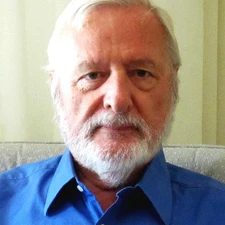Robin T. Clarke

The 2012 Alexander von Humboldt Medal is awarded to Robin T. Clarke for fundamental contributions in statistical analysis and modeling of hydrological processes.
Robin T. Clarke has made visionary contributions, of international relevance, to the science of hydrology throughout his career. His work has spanned a broad spectrum including fundamental analysis of catchments, estimation of extreme hydrological events, transfer of information between sites, and forecasting for the purpose of reservoir management. His distinguished career has involved direct research contributions as well as establishing a culture of research excellence at his institutions. Clarke’s hydrologic work has had scientific international impact that is extraordinary and noteworthy. His personal hydrologic research has been a major force in initiating today’s method of rainfall-runoff processes analysis, in bringing statistical methods to bear on the analysis of extreme hydrological events, and in understanding and managing hydrologic challenges in Brazil. Originally British, Clarke has taken Brazilian citizenship and has dedicated nearly the last 30 years of his research to the hydrology of South America. His association with the Institute of Hydraulic Research – IPH in Brazil was the starting point for the establishment of one of the main projects developed in the Amazon Basin: the Anglo-Brazilian Climate Observation Study (ABRACOS). This did groundbreaking research on the consequences for local climate of replacing Amazon rainforest by cattle pasture. The enormous challenges of Brazilian hydrology have driven Clarke’s research to the study of the changes in Brazilian hydrological regimes that have occurred as a result of land-use change from indigenous forest to intensive agriculture. These now appear also to be occurring as a result of long-period climate change. In the face of possible changes, due to climate change, in the physical processes that gave rise to historical hydrological records generated, Clarke set out the evidence for, and impacts of, climatic and hydrological change within the la Plata Basin. Predicting future flows, up to three months ahead, into the Brazilian reservoirs used for hydropower generation has also been amongst the research fields explored by Clarke. This new vision included the wide use of climate signal into hydrological forecast. During his time at the IPH, Clarke has supervised 20 doctoral candidates from Brazil and other South American countries (in particular, Argentina) who have since taken up important professorial posts at a number of universities.
Medal lecture video (Youtube) of the Alexander von Humboldt Medal given at the EGU General Assembly 2012.
